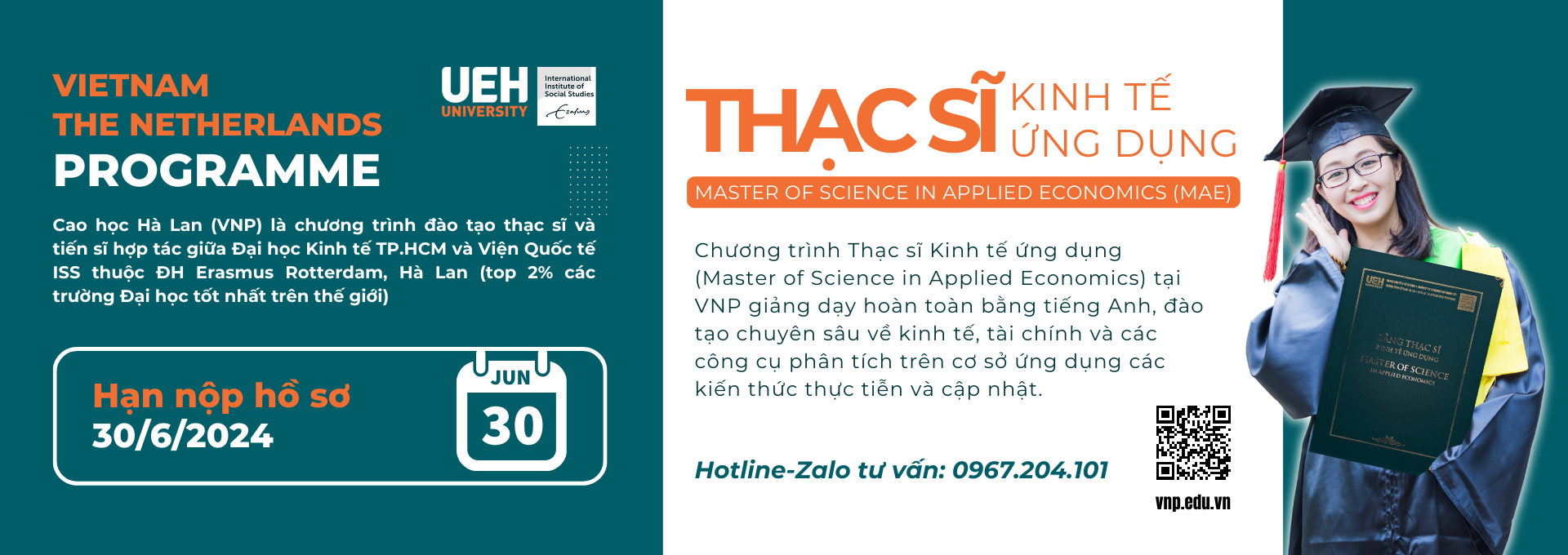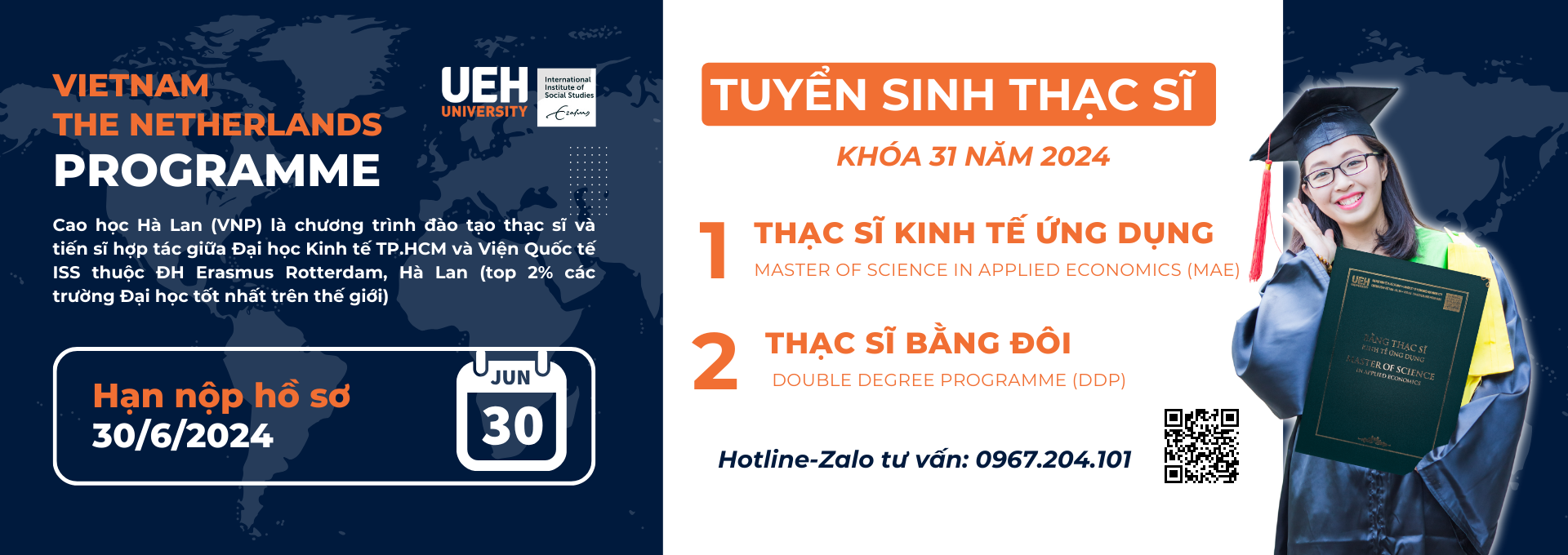










đến Công dân toàn cầu vì sự phát triển bền vững
Master degree in Finance
Finance
The Master degree in Finance (touch program track) aims to equip students with broad, and in-depth knowledge in specific fields of corporate financial management, financial investment, and financial risk management. Besides general courses, depending on the student’s choice of track-specific courses, the program deals with in-depth specializations in the field of finance, prepares the student for managerial positions in corporations, conglomerates, multinational companies, financial institutions, insurance companies, etc.
The Master degree in Finance helps the students achieve in-depth understanding of relevent economic and financial theories, the skills to apply specialized knowledge to real life, where the final market is constantly changing, and hence improving thinking skills, awareness of global issues and using the acquired knowledge and skills to address them. Depending on the choice of knowledge block, in particular corporate finance, financial investment or financial risk management, the students will be able to utilize the relevant knowledge in organization, analysis and decision making in the context of their workplace.
I. General knowledge | 8 | |||
| Philosophy | 4 |
| |
| Foreign language | 4 |
| |
II. Fundamental knowledge and compulsory subjects | 21 | |||
| Financial Economics | 3 |
| |
| Corporate Finance | 3 |
| |
| International Finance | 3 |
| |
| Financial Risk Management | 3 |
| |
| Investments | 3 |
| |
| Research Methodology in Finance | 3 |
| |
| Financial Econometrics | 3 |
| |
Elective subjects | 18 | |||
| Financial analysis | 3 |
| |
| Corporate valuation | 3 |
| |
| Mergers & Acquisitions, Divestment | 3 |
| |
| Behavioural Finance | 3 |
| |
| Entrepreneurial Finance | 3 |
| |
| Quantitative Finance | 3 |
| |
| Derivatives | 3 |
| |
| Risk Analysis & Modelling | 3 |
| |
| Advanced Financial Risk Management | 3 |
| |
| Implementing Enterprise Risk Management | 3 |
| |
| International Financial Regulation | 3 |
| |
| Current Issues in Risk Management Practice | 3 |
| |
| Fixed Income Assets | 3 |
| |
| Valuation, IPO and M&A | 3 |
| |
| Portfolio Management | 3 |
| |
Internship and Graduation | 13 | |||
| Thematic report | 6 |
| |
| Project | 7 |
| |
Total | 60 |
| ||
Master students who graduate from Finance program achieve the following outcomes:
Knowledge
- Interpret and explain in detail the theories, instruments, and rules of financial markets and activities;
- Relate to and explain real-life issues, based on in-depth theoretical knowledge of corporate finance, financial investment, and financial risk management;
- Apply the financial principles, tools, and methodology when practicing corporate financial management, financial investment, and financial risk management;
Skills
- Be able to solve real-life issues using knowledge of finance, risk management, and investment on the global scale and in various economic, social, moral, and institutional contexts;
- Have skills of analyzing and consolidating the complex issues of domestic and international financial systems in the presence of multi-dimensional information and apply to work context;
- Be able to do research, synthesize, and present research results in order to solve real-life issues in financial management;
- Have skills of diagraming and composing research results and applying innovations to the finance sector in real life;
Autonomy and Responsibility
- Be able to learn and work in groups in order to generate financial solutions in corporate management, portfolio management, financial risk management;
- Be able to support, guide, and supervise others in carrying out tasks related to capture, identify, analyze, and evaluate financial information sources as well as the complex issues of the global economic and financial system;
- Combine methodology with practical expertises to carry out financial projects efficiently with full awareness of occupational rules and institutional regulations.
In addition to the above output standards, graduates achieve foreign language ability level 4/6 of Vietnam’s Foreign Language Competency Framework.
Organization | Position | Job description |
Domestic and foreign corporations and financial institutions. | CFO, associate financial managers/director, corporate financial advisor | Financial management in corporations and financial institutions |
Financial institutions such as banks, security companies, invesment funds, insurance companies, corporations, investment companies, etc. | Director, investment specialist, investment manager, portfolio manager, mergers and acquisitions
| Provide consultation and make decisions related to financial investments for investment committees in professional investment organizations |
Financial institutions such as banks, security companies, invesment funds, insurance companies, etc. | Risk management specialist director/manager. | Provide consultation and manage financial risks in both banking and non-banking institutions. |